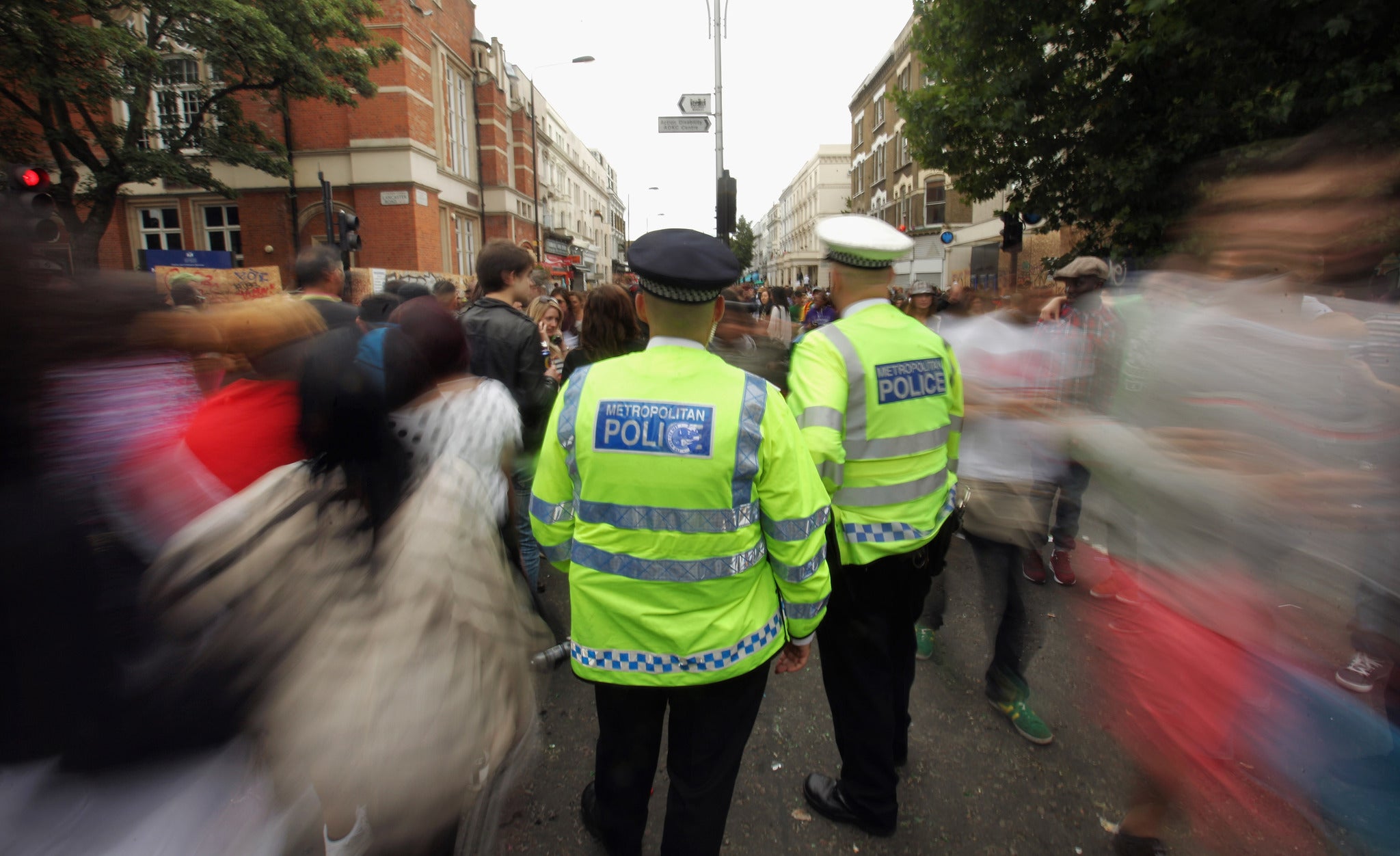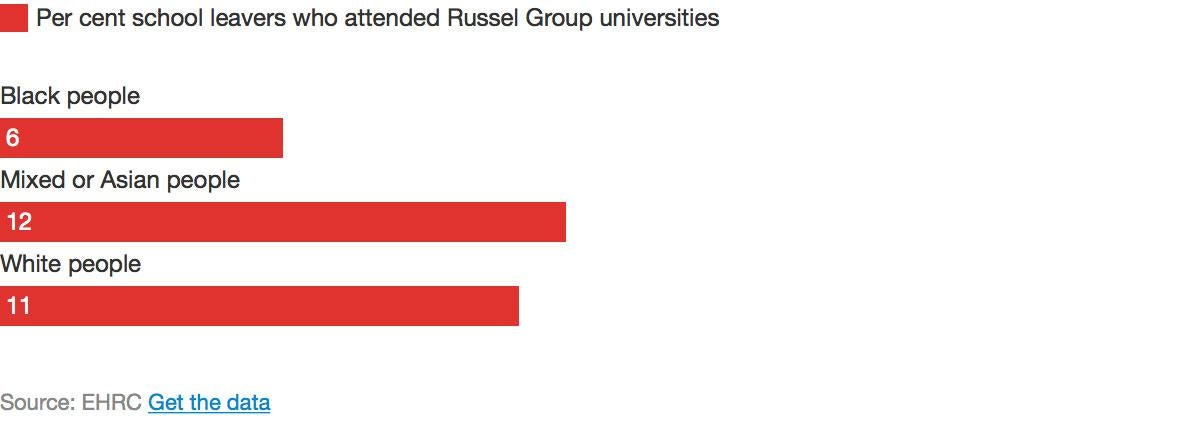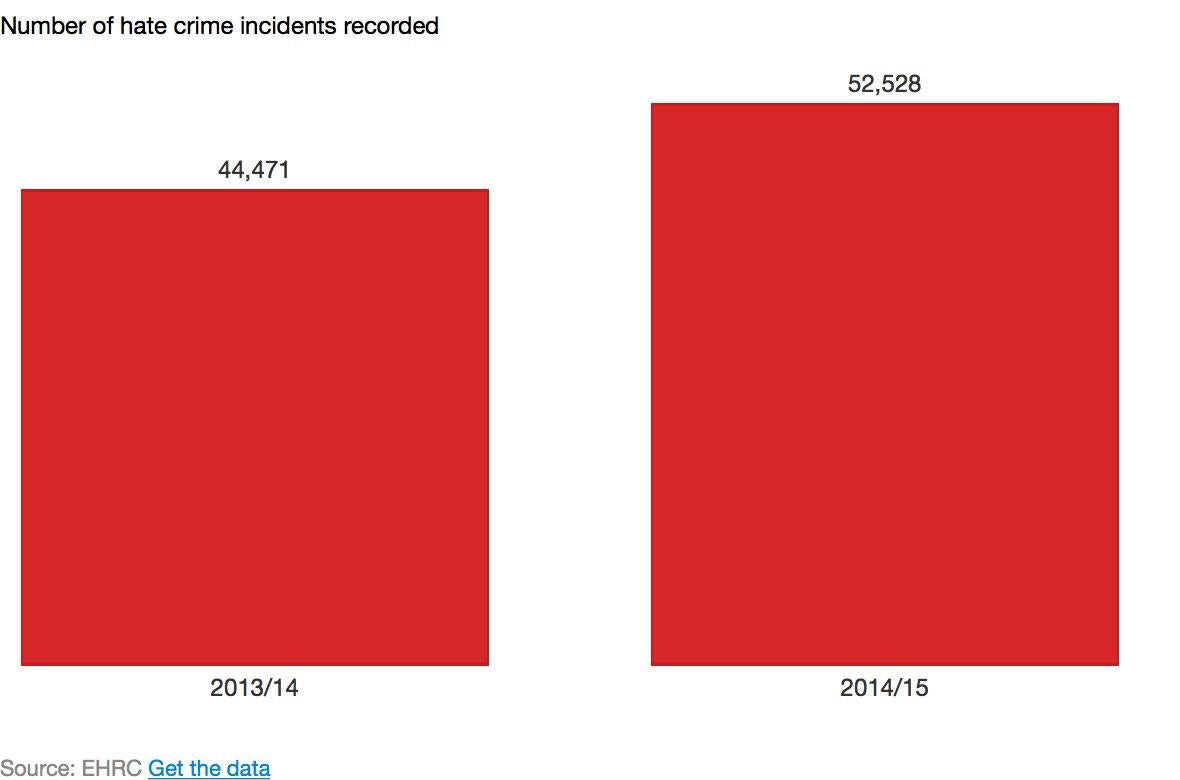6 charts that show what its really like to be black or an ethnic minority in Britain
The report 'underlines just how entrenched race inequality and unfairness still is in our society'

Your support helps us to tell the story
From reproductive rights to climate change to Big Tech, The Independent is on the ground when the story is developing. Whether it's investigating the financials of Elon Musk's pro-Trump PAC or producing our latest documentary, 'The A Word', which shines a light on the American women fighting for reproductive rights, we know how important it is to parse out the facts from the messaging.
At such a critical moment in US history, we need reporters on the ground. Your donation allows us to keep sending journalists to speak to both sides of the story.
The Independent is trusted by Americans across the entire political spectrum. And unlike many other quality news outlets, we choose not to lock Americans out of our reporting and analysis with paywalls. We believe quality journalism should be available to everyone, paid for by those who can afford it.
Your support makes all the difference.Racial inequality in Britain is "entrenched and far-reaching," according to a report published by the Equality and Human Rights Commission, which says that the life chances of young ethnic minority people in the UK have become much worse over the past five years.
“The combination of the post-Brexit rise in hate crime and deep race inequality in Britain is very worrying and must be tackled urgently, " the report says. “Today's report underlines just how entrenched race inequality and unfairness still is in our society.
“We must redouble our efforts to tackle race inequality urgently or risk the divisions in our society growing and racial tensions increasing."
The EHRC report, the biggest review of race equality in the UK, found black and ethnic minorities are:
...more likely to be unemployed

People from ethnic minorities have disproportionately high unemployment rates compared to white people.
Research on ethnicity and employment trends in 2013 found white people had a higher employment rate than those from ethnic minorities.
...more likely to live in poverty

People from ethnic minorities were more likely to live in poverty than white people in 2012/13. This ranged from 24.6 per cent of Indian people and 39.9 per cent of black people, to 43.9 per cent of Pakistani/Bangladeshi people.
Poverty rates were significantly higher for children living in a household headed by someone from an ethnic minority at 41.9 per cent, compared to 24.5 per cent in households headed by someone who is white.
...less likely to go to a top university

Black school leavers are less likely to attend a Russel Group university compared to mixed, Asian or white pupils.
...less likely to get a good degree

The report found stark differences by ethnicity in the proportion of undergraduate students who received a 1st/2:1 degree in 2013/14.
The gap was particularly high for male undergraduate students, with 76.3 per cent of male students received a 1st/2:1 compared to 60.3 per cent of ethnic minority students.
Fewer ethnic minority undergraduate students received a 1st/2:1 degree in 2013/14. The gap was particularly high for male undergraduate students, of which 73.5 per cent white males received 1st/2:1 compared to 46.2 per cent of black male undergraduate students
...less likely to work in managerial positions

In Britain, a lower per centage of people from ethnic minorities work as managers, directors and senior officials.
This was particular true of the African/Carribean/black group, of which 5.7 per cent worked in managerial positions, and the mixed ethnicity group, of which 7.2 per cent did.
...more likely to be a victim of a hate crime

Home Office statistics show an increase of 18 per cent in the number of hate crimes reported by police in England and Wales.
Race remains the most commonly recorded motivation for hate crime, at 82 per cent of recorded motivations.
"We must redouble our efforts to tackle race inequality urgently or risk the divisions in our society growing and racial tensions increasing," Mr Isaac added. "If you are black or an ethnic minority in modern Britain, it can often still feel like you're living in a different world, never mind being part of a One Nation society.”
Join our commenting forum
Join thought-provoking conversations, follow other Independent readers and see their replies
Comments